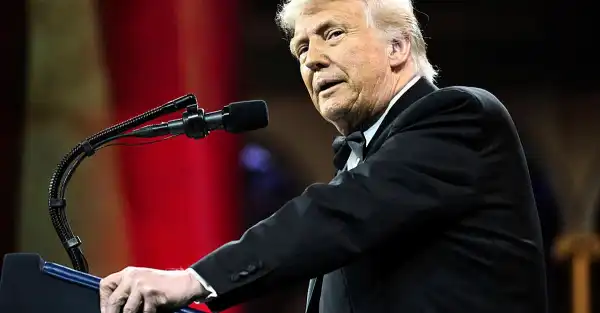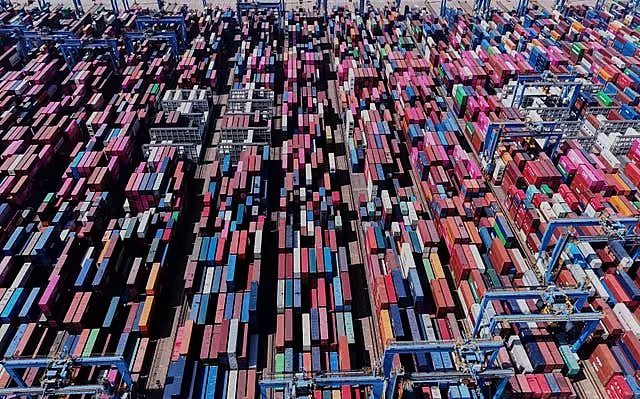
China is increasing tariffs on American goods to 84% and has vowed to “fight to the finish” in an escalating confrontation that threatens to undermine trade between the world's two largest economies.
The new rates, which take effect Thursday, are a response to U.S. President Donald Trump's decision to increase tariffs on Chinese goods to 104% in a hike that has hit U.S. trading partners around the world. Europe and Canada also responded Wednesday by imposing new tariffs on imports from the United States.
The tariff hikes are the latest development in an ongoing trade war that could drive up prices for U.S. consumers and undermine China’s efforts to improve its ailing economy. The Chinese government’s response shows its determination not to bow to pressure from Trump, despite the risks involved.
“If the United States continues to insist on strengthening its economic and trade restrictions, China has the will and the means to retaliate and fight to the end,” the Commerce Department said before announcing the tariff increases.

Beijing also restricted doing business with nearly a dozen American companies and said it would file a new lawsuit against the American tariffs at the World Trade Organization.
The United States exported a record $199 billion to China last year, while China exported $463 billion in goods and services to the United States, ranking third behind Mexico and Canada, according to the U.S. Commerce Department.
As recently as 2022, China was the top source of imports to the United States, but it has now lost ground to its neighbors due to worsening relations with the United States.
The European Chamber of Commerce in China accused the US of abandoning many of the fundamental principles that have guided its approach to trade and investment. It said Trump’s tariffs would have a significant impact on European companies exporting from China to the US, forcing them to rethink their business models and supply chains.
“This will lead to significant increases in operating costs and inefficiencies, which will ultimately lead to higher prices for consumers,” the statement said.
While the U.S. and China may want to find a way to return to talks, “it will be a difficult path because both countries have doubled down and the bilateral relationship has effectively reached a stalemate,” said former U.S. Trade Representative Wendy Cutler, vice president of the Asia Society Policy Institute.
China does not appear to be interested in negotiations, as some other countries have begun to do.
“If the US really wants to solve problems through dialogue and negotiations, it should take a position of equality, respect and mutual benefit,” Chinese Foreign Ministry spokesman Lin Jian said on Wednesday.
China's Ministry of Culture and Tourism has issued a travel warning urging its
Sourse: breakingnews.ie






